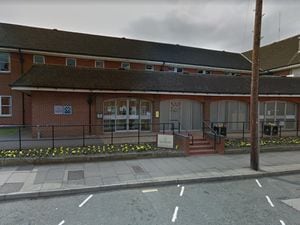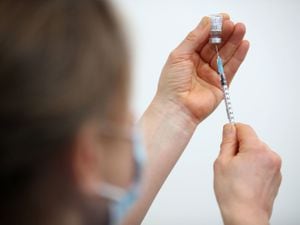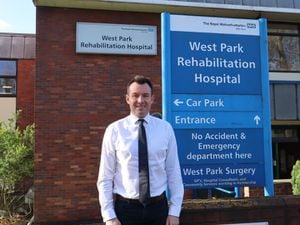Revealed: How many patients are waiting weeks to see GPs in your area
NHS data shows tens of thousands of patients are waiting at least three weeks to see a GP - but there are huge differences across the Black Country and Staffordshire.

More than 70,000 patients in the West Midlands and Staffordshire are waiting at least three weeks to see a GP.
NHS Digital data shows 74,350 people had to wait until at least 21 days to see a doctor after booking an appointment.
The figures show huge anomalies.
While some wait three weeks, around a third of patients in Wolverhampton, Dudley, Walsall and Cannock were able to see a GP the same day the appointment was made.
Nearly half of patients under the care of Sandwell and West Birmingham Clinical Commissioning Group, and two in five patients in the Stafford area were able to see a GP the same day the appointment was made.
Experts say the figures include patients who need regular appointments and are likely to be booking ahead.
Nationally, one in 10 patients waited at least three weeks to see a GP.
How the figures break down:
Wolverhampton
More than 12,000 patients in Wolverhampton are waiting at least three weeks to see a GP.
NHS Digital data shows 12,270 people had to wait until at least 21 days to see a doctor after booking an appointment.
The figure represents 10 per cent of all patients – and 7,100 of them waited more than a month.
The figures relate to GPs within Wolverhampton’s clinical commissioning group in October.
Waiting times were in line with the same period last year, when one in 10 patients waited for at least three weeks.
Dudley
18,380 people had to wait until at least 21 days.
The figure represents 11 per cent of all patients – and 8,500 of them waited more than a month.
The figures relate to GPs within Dudley’s clinical commissioning group in October.
Waiting times worsened when compared to the same period last year, when one in 10 patients waited for at least three weeks.
Sandwell
19,610 people had to wait until at least 21 days.
The figure represents seven per cent of all patients – and 10,600 of them waited more than a month.
The figures relate to GPs within Sandwell and West Birmingham’s clinical commissioning group in October.
Waiting times were in line with the same period last year.
Walsall
13,770 people in the Walsall Clinical Commissioning Group had to wait until at least 21 days.
The figure represents nine per cent of all patients – and 6,500 of them waited for more than a month.
Waiting times worsened in comparison with the same period last year, when seven per cent of patients waited for at least three weeks.
Staffordshire
10,320 people in the Stafford and Surrounds Clinical Commissioning Group had to wait until at least 21 days to see a doctor after booking an appointment in October 2018.
The figure represents 13 per cent of all patients – with 5,100 waited more than a month.
Waiting times worsened in comparison with the same period last year, when 10 per cent of patients waited for at least three weeks.
The data also shows that 4,970 people in the Cannock Chase Clinical Commissioning Group had to wait until at least 21 days for an appointment – seven per cent of all patients.
'Frustrating'
The Patients Association today said the impact of the waits “should not be underestimated”.
Rachel Power, the charity’s chief executive, said: “It can be incredibly stressful to face a long wait before getting to see a doctor, quite apart from prolonging the length of time someone has to live with the medical issue that is troubling them.
“All of this is a symptom of an NHS running at boiling point all year round.”
Professor Helen Stokes-Lampard of the Royal College of GPs, said it was “frustrating” that patients were having to wait too long to secure a GP appointment.
“We want to deliver timely care to patients, in the early stages of illness, to avoid conditions getting worse, when they can be both more distressing for patients, and more costly for the NHS,” she said.
Across England, doctors see around one million patients every day, with Mondays the busiest.





